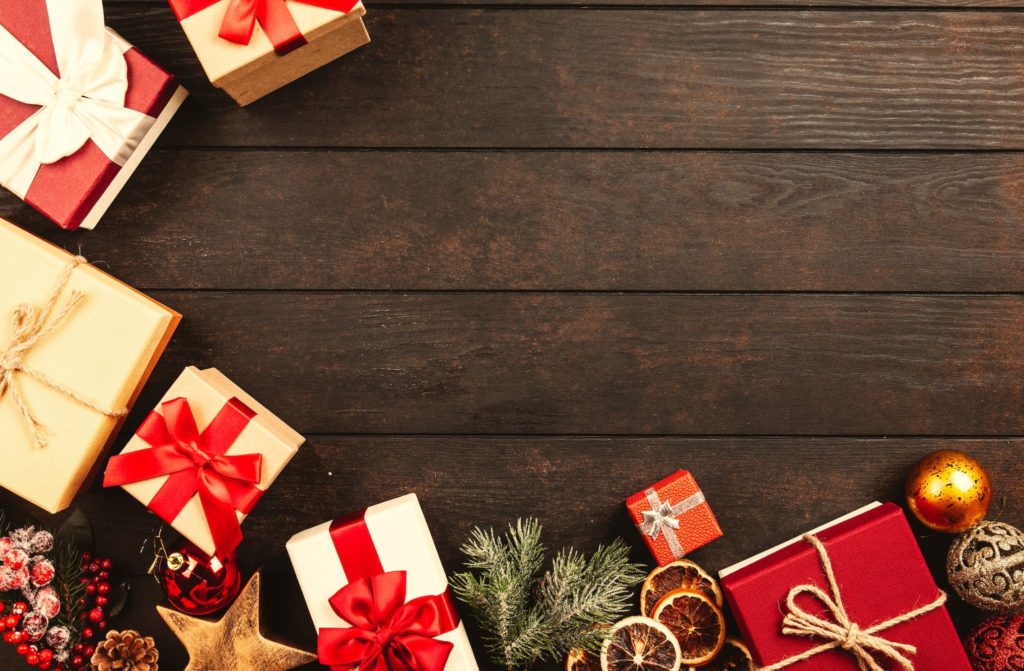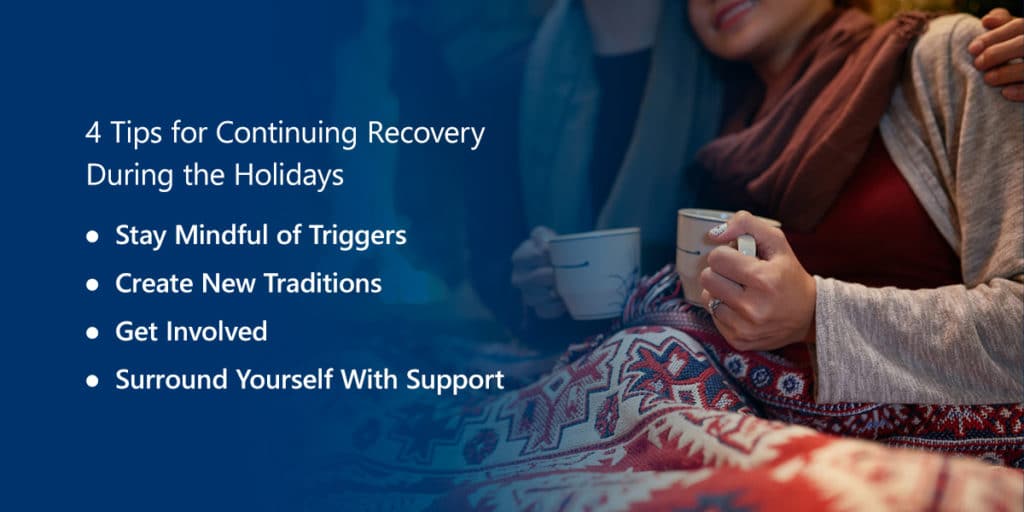While many believe that the holidays bring out the best in people, if you or your loved one struggles with opioid addiction or another substance use disorder, the stress and chaos of the holiday season may be too much to bear. If you or a loved one is new to recovery, some extra encouragement, support and understanding may be required from those who care about your recovery journey.
Why the Holidays and Substance Use Disorders Don’t Mix
The pressures of the holidays can get to anyone. Yet, for someone recovering from an addiction to opioids or another substance, this time of year can awaken long-dormant cravings. Each individual is different, but here are some factors that complicate the season for those battling addiction during the holidays:
- Isolation and loneliness during a family-focused time
- Financial stress from gift-giving and travel
- Chaotic schedules that throw usual routines off-balance
- Dysfunctional family dynamics
- Gatherings and parties where alcohol flows freely
4 Tips for Continuing Recovery During the Holidays
The holidays’ complexity can trigger cravings and help you rationalize substance use. When special occasions make your recovery journey more challenging, consider these tips to continue on your path.
1. Stay Mindful of Triggers
Before the festivities begin, start thinking about what can trigger you during a holiday party. How is your relationship with your family? Do questions about your life and future overwhelm you? Will someone try to persuade you to try their new holiday cocktail? If some of these things happen yearly, you can plan how to manage them. Setting firm boundaries is essential, and your counselor or a support system can help you find ways to navigate these situations.
If common substances — like the alcohol in a holiday cocktail — are a likely trigger for you, you can bring your favorite nonalcoholic drink to a gathering and keep it in your hand. People will be less inclined to offer you a drink if you already have one, and you can socialize without others repeatedly asking if they can grab you a drink.
2. Create New Traditions
Recovering from your addiction is an excellent cause for celebration! Create new traditions for the holidays as you establish a new you. Inviting your support system to celebrate your progress lets you have fun in a comfortable environment with like-minded friends and family members.
Setting your own substance-free traditions gives you something to look forward to each year and helps you affirm your new self after starting your recovery journey.
3. Get Involved
The holiday season is about giving. Charities are particularly active around this time, making it easier than ever to help your community. Get your mind off your stressors by volunteering at a local soup kitchen or homeless shelter.
If you notice someone in need of a support system, you can invite them to substance-free family gatherings or ask them to join the traditions you’ve started with your support system. Giving back to your community and passing on the help you’ve received from others can be a rewarding experience that makes the holidays even more merry and bright.
4. Surround Yourself With Support
The best way to guide yourself on the road to recovery is to surround yourself with those you trust and love. They will keep you accountable during this season and cheer you on along the way. Take time to celebrate them this season, making the holidays a positive experience you can look forward to with fewer triggers.
How to Support Someone Recovering From Opioid Addiction During the Holidays
Helping a person who is managing their recovery during the holidays is a true way to honor the spirit of the season. Whether it’s a family member or friend, here are some ideas for supporting someone with opioid use disorder during the holidays.
Set Realistic Expectations
While most people want to create a perfect holiday, this is often unattainable. It’s also unfair to expect a loved one new to their recovery journey to act like all is well. They may be working through complex emotions, such as shame or guilt or find it hard to be around large groups of people. Have a conversation ahead of time about what they’re up for in terms of gatherings or events and respect their limitations.
Don’t Bring Up the Past
Substance use has a wide reach. You and others in your loved one’s life may have felt hurt or angered by their past behaviors and actions. Still, the holidays are not the best times to address lingering conflict. Bringing up the past can make the event a negative experience and put your loved one’s progress at risk. Offer kindness and trust that you’ll have time to resolve these concerns later, in an environment better for these conversations.
Plan a Substance-Free Event
Wine, champagne and cocktails flow freely at many holiday gatherings. For those recovering from opioid addiction, being in the presence of alcohol could trigger substance use. Instead, plan substance-free activities that everyone can enjoy. These occasions could include trimming the tree, venturing out to view Christmas lights, baking cookies or hosting a group game night.
Encourage Your Loved One’s Recovery Journey
Addiction is a disease. Breaking free from this chronic condition requires strength, resilience and bravery. While your loved one’s substance use disorder may have caused harm in the past, now is the time to offer the gift of encouragement. Tell them you’re proud of the steps they’ve taken and that each day they remain substance-free is a victory.
Contact Health Care Resource Centers for More Information About Opioid Addiction Treatment
If you or someone you know has an opioid addiction, HCRC can help. For over 25 years, we’ve supported patients throughout New England wanting to break free from opioid use disorder. The holiday season is the perfect time to find comprehensive, individualized addiction treatment and reclaim your life.
Contact HCRC today to learn more.






